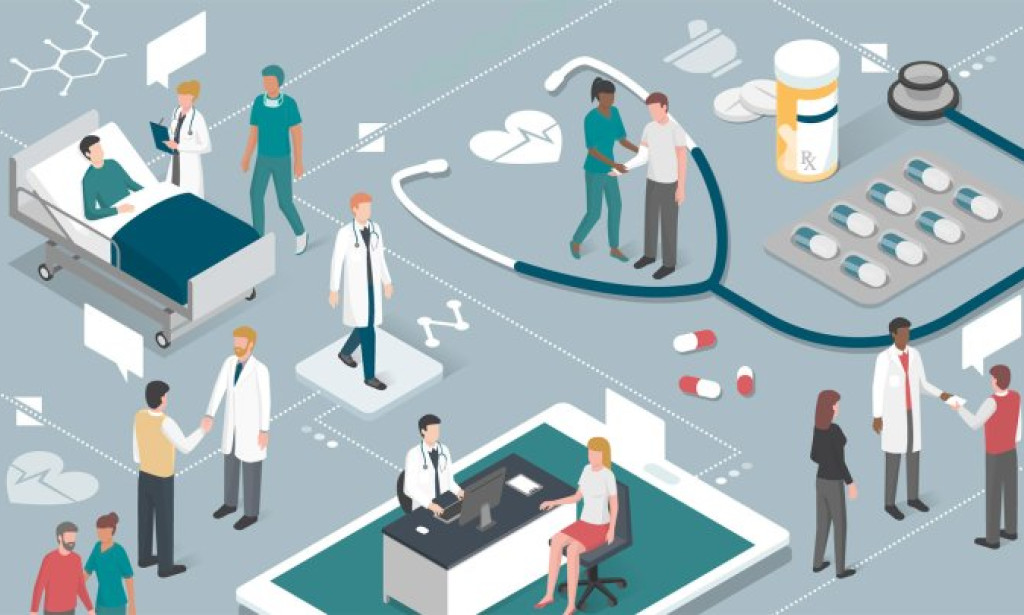Introduction.
Health care for young peoples:
Providing healthcare for young people is essential for their overall well-being and development. Here are some key aspects of healthcare for young individuals:
-
Preventive Care:
- Immunizations: Ensure that young people receive all recommended vaccinations to protect them from various diseases.
- Screenings: Conduct regular health screenings for conditions such as vision and hearing problems, as well as screenings for mental health issues.
-
Physical Health:
- Regular Check-ups: Schedule routine health check-ups to monitor growth, development, and overall physical health.
- Nutrition: Encourage a balanced diet and provide education on nutrition to promote healthy eating habits.
- Exercise: Promote regular physical activity to support cardiovascular health, muscle development, and overall well-being.
-
Mental Health:
- Access to Counseling Services: Ensure that young people have access to mental health services, including counseling and therapy.
- Education and Awareness: Promote mental health awareness and provide education to reduce the stigma surrounding mental health issues.
-
Reproductive Health:
- Education: Offer comprehensive sexual education to inform young people about reproductive health, contraception, and sexually transmitted infections (STIs).
- Access to Contraception: Provide access to contraception and family planning services.
-
Substance Abuse Prevention:
- Education: Educate young people about the risks of substance abuse and addiction.
- Counseling and Support: Offer counseling and support services for individuals dealing with substance abuse issues.
-
Health Education:
- Promotion of Healthy Habits: Educate young people on the importance of maintaining good hygiene, proper sleep, and stress management.
- Health Literacy: Promote health literacy to empower young people to make informed decisions about their health.
-
Vaccinations:
- Routine Vaccines: Ensure that young people receive vaccinations according to the recommended schedule to protect against preventable diseases.
-
Access to Healthcare Services:
- Affordability and Accessibility: Ensure that healthcare services are affordable and accessible to all young people, regardless of their socioeconomic status.
-
Community Involvement:
- Community Programs: Support community-based programs that focus on the health and well-being of young people.
- School Health Programs: Collaborate with schools to implement health programs that address the unique needs of students.
-
Digital Health:
- Telehealth Services: Explore the use of telehealth services to improve access to healthcare, especially in remote or underserved areas.
- Digital Health Resources: Provide digital resources for health information and education.
It's important to recognize the diverse needs of young people and tailor healthcare services accordingly. Additionally, involving young people in decisions about their healthcare can empower them to take an active role in maintaining their well-being.
Rules:
Healthcare for young people is guided by a set of principles and rules designed to ensure their well-being and address their unique needs. These principles are often based on a holistic understanding of health, encompassing physical, mental, and social aspects. Here are some key rules and principles for providing healthcare to young people:
-
Accessibility:
- Healthcare services should be easily accessible to all young people, regardless of their socioeconomic status, geographical location, or cultural background.
- Efforts should be made to eliminate barriers to access, including financial barriers, transportation issues, and cultural or language-related obstacles.
-
Confidentiality:
- Respect the confidentiality of young people's health information, especially in sensitive areas such as sexual health and mental health.
- Clearly communicate confidentiality policies to build trust and encourage open communication between healthcare providers and young patients.
-
Informed Consent:
- Obtain informed consent from young people before providing medical treatment, especially for procedures that may be considered sensitive or invasive.
- Ensure that young people have access to information about their health, treatment options, and potential risks and benefits.
-
Empowerment:
- Empower young people to actively participate in their healthcare decisions and take responsibility for their health.
- Provide health education to enhance their health literacy and ability to make informed choices.
-
Culturally Competent Care:
- Deliver culturally competent healthcare, recognizing and respecting the diverse backgrounds, beliefs, and values of young people and their families.
- Address cultural disparities in healthcare access and outcomes.
-
Comprehensive Care:
- Provide comprehensive healthcare that addresses both physical and mental health needs.
- Integrate preventive care, mental health services, and reproductive health services into a well-rounded healthcare approach.
-
Preventive Care:
- Emphasize the importance of preventive care, including vaccinations, regular check-ups, and screenings for common health issues.
- Encourage healthy lifestyle choices and behaviors to prevent the onset of chronic diseases.
-
Youth-Friendly Environments:
- Create healthcare environments that are welcoming and youth-friendly, recognizing the unique needs and concerns of young people.
- Train healthcare providers to communicate effectively with young patients and create a non-judgmental atmosphere.
-
Collaboration with Schools and Communities:
- Collaborate with schools and community organizations to promote health education and outreach programs.
- Recognize the role of schools and communities in supporting the health and well-being of young people.
-
Digital Health Integration:
- Integrate digital health tools and technologies to enhance accessibility and engagement with healthcare services.
- Use technology to provide health information, telehealth services, and support for mental health and well-being.
These rules and principles help guide the development and implementation of healthcare services for young people, ensuring that their unique needs are met in a respectful, inclusive, and effective manner.
This article provides valuable insights into healthcare for young people, highlighting the importance of mental and physical health during formative years. Explore essential tips for maintaining well-being, understanding healthcare resources, and the significance of preventive care. Empower yourself with knowledge to navigate health challenges and promote a healthier future.


.jpg)


You must be logged in to post a comment.